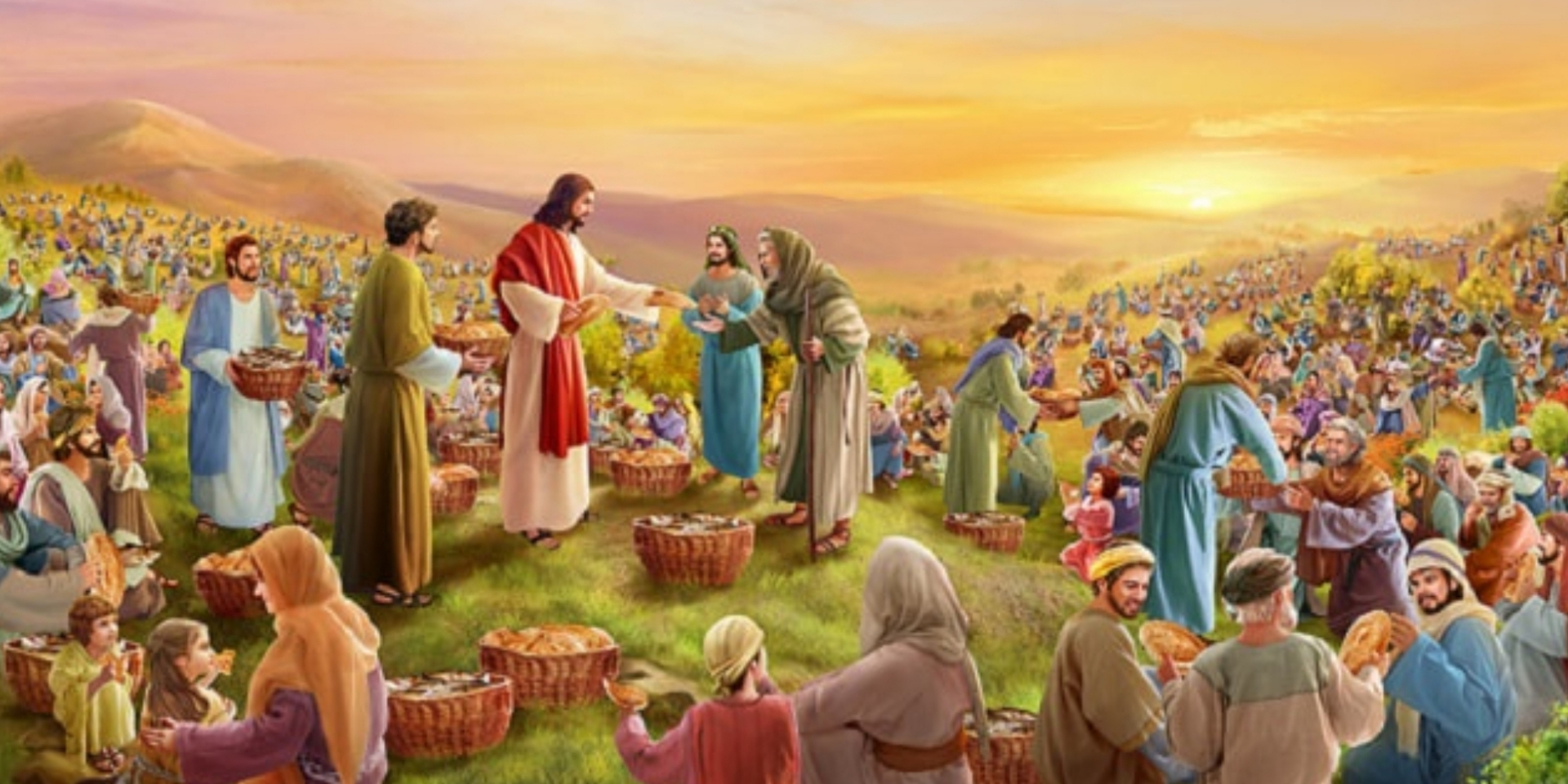
Matthew 14:13-21
¹³Now when Jesus heard about John, He withdrew from there in a boat to a secluded place by Himself; and when the people heard of this, they followed Him on foot from the cities.
¹⁴When He went ashore, He saw a large crowd, and felt compassion for them and healed their sick.
¹⁵When it was evening, the disciples came to Him and said, “This place is desolate and the hour is already late; so send the crowds away, that they may go into the villages and buy food for themselves.”
¹⁶But Jesus said to them, “They do not need to go away; you give them something to eat!”
¹⁷They said to Him, “We have here only five loaves and two fish.”
¹⁸And He said, “Bring them here to Me.”
¹⁹Ordering the people to sit down on the grass, He took the five loaves and the two fish, and looking up toward heaven, He blessed the food, and breaking the loaves He gave them to the disciples, and the disciples gave them to the crowds , ²⁰and they all ate and were satisfied. They picked up what was left over of the broken pieces, twelve full baskets.
²¹There were about five thousand men who ate, besides women and children.
Devotional
The report of the death of John the Baptist makes a deep impression on the Lord Jesus (Matthew 14:13a). Not only was John a distant relative of Him, but the relationship between their mothers, Mary and Elizabeth, played a major role in both their lives (Luke 1:26-45). John was the prophet who, in front of many people, designated Jesus as “the Lamb of God, who takes away the sin of the world” (John 1:29). Jesus called him “the greatest that is born of women” (Matthew 11:11).
Jesus also realizes the imminent danger to his own life.
He lives in Capernaum and Herod Antipas in Tiberias, places not far apart.
Jesus is not primarily afraid for his life, but it appears time and again that he fears that he would be killed prematurely. He wants to die in God’s time (cf. John 7:6a; 12:23,24). But probably not only because of that, He now moves to the other side of the Sea of Galilee, also to be able to process the news of John’s death with His disciples and with His heavenly Father. He discusses all things of his life with his heavenly Father (cf. Luke 3:21,22; 5:16; 6:12; 9:18a,28; 11:1).
But instead of silence, Jesus meets a crowd there.
He cares about them (Matthew 14:14). He sees them as sheep without a shepherd (cf. Matthew 9:36). The day flies by and the disciples warn Jesus that evening is approaching. People have to go home, it’s dinner time and there’s nothing to get here. And then Jesus speaks a word of apparent impossibility: “…give them to eat” (Matthew 14:16).
This word will always remain a command for those who represent Jesus on earth as long as He has not yet returned. We who believe in Jesus are never here for our own soul and salvation alone, but always for others as well. “Do you feed him or her!”
This is true in both a spiritual and material sense. We must constantly make ourselves available to the neighbor, i.e. to him or her who lives next to us. And that also applies to the congregation of Jesus as a whole. Whoever wants to be a Christian like that will discover that Jesus Himself provides what is needed at that moment (Matthew 14:19)!
Question
- How are you available? (cf. Titus. 3:1,2.)



